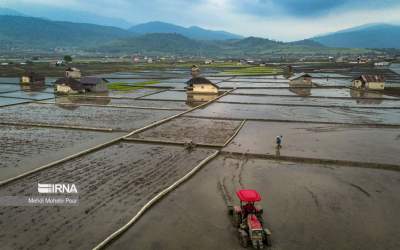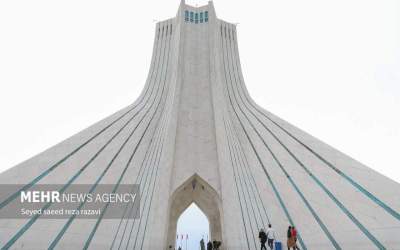Monday 20 May 2019 - 12:00
Story Code : 349452
Germany and JCPOAs partnership far beyond expectations
After the US withdrawal and the imposition of anti-Iran sanctions, Germany's move to maintain the nuclear deal, like other European members, is far beyond Berlin's commitments.
Recently, contrary to the previous months, German authorities' comments on the effects of undermining the JCPOA have come to light. German Foreign Minister Haiku Moss in an interview with a German newspaper on Thursday, pointing to the necessity for Tehran to comply with its commitments in the JCPOA, called Washington's unilateral withdrawal as understandable, and referenced to the European Unions belief in dialogue rather than exacerbation of verbal conflicts between the two sides.
He also argued that Donald Trump's 'double pressure' policy on Iran would not go anywhere. In a meeting with US Secretary of State Mike Pompeo last week, he cited Berlin's concerns about the escalation of tensions in the Middle East. In the last week's interview with Blade, Moss said that the EU needs the nuclear deal and its existence.
** Germans acknowledgment of Europe's inadequate measures to keep JCPOA
Angela Merkel's remarks about the European measures to uphold nuclear agreement with Süddeutsche Zeitung, late last week was reflected in many media outlets. The German Chancellor acknowledged that Europe's performance on Iran is weak and faces challenges in the opposition to US sanctions to maintain the nuclear deal.
While the French officials speak of the significant progress of INSTEX , in the face of Irans demand of the mechanism, the German government spokesman said on May 8 that the launch of the financial channel, the mechanism for the exchange of funds between Iran and Europe, was longer than expected. Few days later, Stefan Zibert spoke of Berlin's attempt to create a financial channel for Iran's legal trade.
The INSTEX, previously set up under the name Special Purpose Vehicle (SPV), was launched after months of delay last February to initially pave the way for food and drug exchanges and as an independent European entity and away from the dollar cycle, to expand the scope of its activities to other items.
After the founding of this institution in the French Ministry of Economy, INSTEX's executive matters was handed over to Paris and the supervisory issues were handed over to UK so that the German seasoned banker, Per Fischer, was appointed in charge of this mechanism.
** Berlin and defending JCPOA in word
Germany was a country that was positively involved in the negotiations on the nuclear talks, or at least as some observers noted, did not make any obstruction on the road to reaching the agreement.
After reaching the nuclear deal in July 2015, the Berlin leaders to date have been among the defenders of the agreement. Merkel in a short meeting with the president of the United States in her first visit with Trump, raised the issue of JCPOA.
In April of last year and a few days before the departure of America from the JCPOA, she told Trump that Germany would support the nuclear deal. Merkel, of course, in a questionable commentary, tried to portray a kind of affiliation with the concerns of the president of the United States, saying that the JCPOA was effective in eyes of Germany and provided 'more control over Iran, but not enough, and Iran's missile program and military presence in the region is still a source of concern.'
Earlier in the October 2017, the German Chancellor, in Trumps telephone call to express congratulation for Merkel's election victory, tried to persuade the US president to stay in the nuclear deal with Iran.
Merkel outlined her country's stance on nuclear deal at various occasions, including at the Munich Security Summit last February, saying JCPOA is effective despite the departure of the United States.
On the anniversary of the US withdrawal from the JCPOA which Iran announced the decrease in its commitments, Merkel, along with other European leaders, called on Iran to comply with its obligations, saying that Tehran must accept its interests are complying with its obligations in the framework of the JCPOA. The framework is in place. she emphasized that JCPOA is still the best solution, underlined the serious support of Europe for the nuclear deal.
** Germany, JCPOA and a partnership below the expectations
Germany before the nuclear sanctions of the early part of the decade was considered to be greatest European partner of Iran; but economic relations between the two sides, however, went downhill in the course of nuclear sanctions.
Although many sanctions were lifted via JCPOA, the Germans, with much hesitation, resumed the development of commercial and economic cooperation. According to the Iranian economic attaché in Germany in last July, the volume of economic relations between the two countries has risen by 26% to $3.7 billion. Various sources announced the volume of these relationships in 2014 and 2015 were about 2.5 billion dollars.
Looking at these figures and comparing them with other figures on Iran's foreign trade over the past four years shows that the growth of Iranian-German trade in the coming years after JCPOA has slowed down.
Meanwhile, Deputy Chancellor and German Minister of Economic Affairs Sigmar Gabriel was the first European official to travel to Iran immediately after the JCPOA in July 2015; a trip that was repeated in October of the following year, with numerous German delegations headed to Iran but in practice, there was no serious change in relations between the two sides.
Now, the Germans, with policies similar to those of Britain and France, call Tehran to comply with the commitments made in the nuclear deal, and they are slow to fulfill their obligations in the JCPOA.
# Tags










